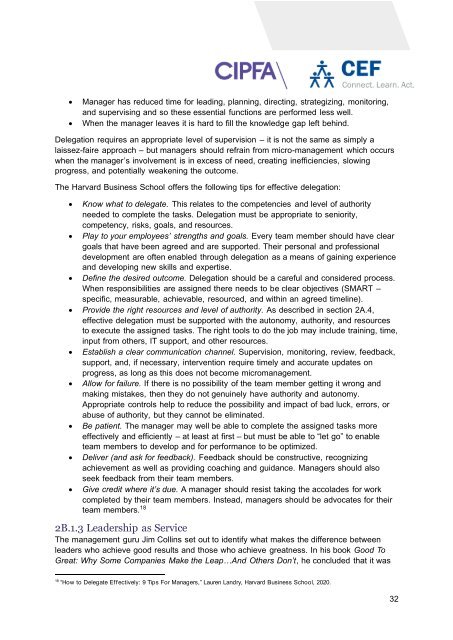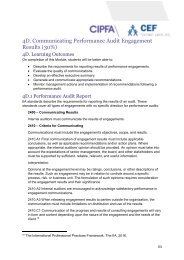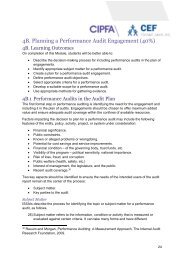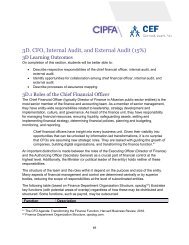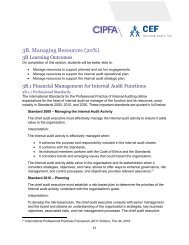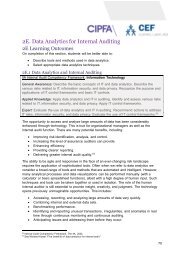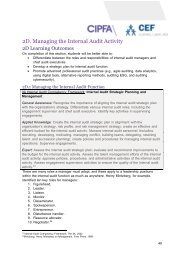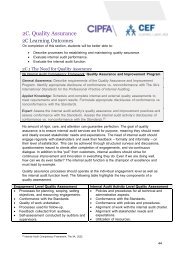TIAPS ALB_Module 2B. Managing People
- No tags were found...
You also want an ePaper? Increase the reach of your titles
YUMPU automatically turns print PDFs into web optimized ePapers that Google loves.
• Manager has reduced time for leading, planning, directing, strategizing, monitoring,<br />
and supervising and so these essential functions are performed less well.<br />
• When the manager leaves it is hard to fill the knowledge gap left behind.<br />
Delegation requires an appropriate level of supervision – it is not the same as simply a<br />
laissez-faire approach – but managers should refrain from micro-management which occurs<br />
when the manager’s involvement is in excess of need, creating inefficiencies, slowing<br />
progress, and potentially weakening the outcome.<br />
The Harvard Business School offers the following tips for effective delegation:<br />
• Know what to delegate. This relates to the competencies and level of authority<br />
needed to complete the tasks. Delegation must be appropriate to seniority,<br />
competency, risks, goals, and resources.<br />
• Play to your employees’ strengths and goals. Every team member should have clear<br />
goals that have been agreed and are supported. Their personal and professional<br />
development are often enabled through delegation as a means of gaining experience<br />
and developing new skills and expertise.<br />
• Define the desired outcome. Delegation should be a careful and considered process.<br />
When responsibilities are assigned there needs to be clear objectives (SMART –<br />
specific, measurable, achievable, resourced, and within an agreed timeline).<br />
• Provide the right resources and level of authority. As described in section 2A.4,<br />
effective delegation must be supported with the autonomy, authority, and resources<br />
to execute the assigned tasks. The right tools to do the job may include training, time,<br />
input from others, IT support, and other resources.<br />
• Establish a clear communication channel. Supervision, monitoring, review, feedback,<br />
support, and, if necessary, intervention require timely and accurate updates on<br />
progress, as long as this does not become micromanagement.<br />
• Allow for failure. If there is no possibility of the team member getting it wrong and<br />
making mistakes, then they do not genuinely have authority and autonomy.<br />
Appropriate controls help to reduce the possibility and impact of bad luck, errors, or<br />
abuse of authority, but they cannot be eliminated.<br />
• Be patient. The manager may well be able to complete the assigned tasks more<br />
effectively and efficiently – at least at first – but must be able to “let go” to enable<br />
team members to develop and for performance to be optimized.<br />
• Deliver (and ask for feedback). Feedback should be constructive, recognizing<br />
achievement as well as providing coaching and guidance. Managers should also<br />
seek feedback from their team members.<br />
• Give credit where it’s due. A manager should resist taking the accolades for work<br />
completed by their team members. Instead, managers should be advocates for their<br />
team members. 18<br />
<strong>2B</strong>.1.3 Leadership as Service<br />
The management guru Jim Collins set out to identify what makes the difference between<br />
leaders who achieve good results and those who achieve greatness. In his book Good To<br />
Great: Why Some Companies Make the Leap…And Others Don’t, he concluded that it was<br />
18<br />
“How to Delegate Effectively: 9 Tips For Managers,” Lauren Landry, Harvard Business School, 2020.<br />
32


